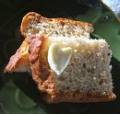
 |
 |
 |
 |
Glycemic Reviews
What Is Hypoglycemia
What is Hypoglycemia?
Hypoglycemia is a symptom of people with diabetes Type I and Type II. It occurs when people have too little sugar, or glucose, in their blood. While this oftentimes is the result of medication from diabetes, hypoglycemia has many different causes and can affect anyone. Those with this disorder present with low blood sugar. This can be temporary and easily fixed by protein or food. In some cases, persons who have been fasting can develop low blood sugar. Often, this is quickly cured by protein.
It is a common blooper that someone suffering from hypoglycemia should be accustomed something sweet to alleviate the condition. The truth of the matter is that those pained from hypoglycemia are usually lacking protein and a food high in protein can alleviate their symptoms. Peanut butter is an excellent choice in helping someone in pain from hypoglycemia.
In some cases, however, hypoglycemia is a disease as it occurs for many different reasons in a person. The best way to define hypoglycemia is to say that it is the opposite of diabetes. While people with diabetes need to avoid sugar as they have an abundance of glucose in their blood, those salt away hypoglycemia have low glucose levels and compulsion to replenish the sugar or glucose in their blood. In many cases, those with diabetes may develop hypoglycemia as a reaction to insulin or diet. This is different than someone who experiences hypoglycemia on an occasional preface, usually the result of not eating properly.
Symptoms of hypoglycemia include shakiness, trial, heart palpitations, sweating, dilated pupils, coldness, feeling of fainting, clamminess. These symptoms are triggered by the loss of glucose that affects the brain If untreated, a person with hypoglycemia can fall into a diabetic coma and even die from the hypoglycemia. If someone is suffering from hypoglycemia, they should be given something to eat rich in protein to avoid falling faint or, in the worst case scenario, falling into a coma.
Other symptoms of hypoglycemia consist of physical symptoms such as vomiting and abdominal pains as well as hunger. As hypoglycemia continues, neurological symptoms may include difficulty speaking, slurred speech, fatigue, anxiety, lethargy, delirium, headache, stupor, far out breathing and finally, coma.
One of the pioneer things that a doctor will do to treat someone with hypoglycemia is to determine the circumstances that caused the disease. A physical examination is necessary and blood samples will usually be responsive. Many cases of hypoglycemia are uncharted as no sample is taken from the blood before glucose is given to relieve the symptom.
In many cases, hypoglycemia is zippo to be concerned about. It can simply represent the reaction of malnutrition or fasting. Multiplied people experience hypoglycemia without even knowing it. If it continues to be a problem, however, many people will seek medical repute to arbitrate the underlying cause of the illness.
For the most part, hypoglycemia has many common causes and for those who experience the symptoms, testing by a medical professional is necessary to determine the etiology of the cause of hypoglycemia. In a good symbol of cases, the cause for hypoglycemia is never determined and the situation resolves itself.
 |
 |
 |
Link Between Diabetes, Heart Attack And Stroke
Teeth Complications Of Diabetes
Foot Complications Of Diabetes
Dietary Supplements Information
Vegetarian Cooking Information
Vitamins And Supplements Information
Health And Fitness Information
More Glycemic Reviews
... white rices such as jasmine rice, white breads and baked potatoes. People who keep diabetes, either Type I or Type II, should avoid these foods as by much as possible. Other foods that are high glycemic foods include those hush up large amounts of white refined sugar or white flour. One thing a doctor ...
... Rule cipher one is manage your weight. One way to manage your weight is to stay plan from foods laden with saturated fats, and sugars. Stay away from fast food, which is usually high in fats, carbohydrates and sugars. Most fast sustenance offer short in the way of nutrition but are high in fat and carbohydrates. ...
Weight Control In Diabetes Management
... smooch and carbohydrate intake. This is the objective of diabetic management. Unlike people without the disease, diabetics do not process out-and-out sugars and carbohydrates through their system, which increases the glucose level in their blood,. Glycemia is the term used for the step of glucose in your ...
... develop a diabetic diet but who is unaware of what foods rank high and rank low. Most people may assume that a piece of gray bread is way worse for a person with diabetes than a candy bar, but this is not true. By learning the different ratings and classifications on the Glycemic Index, a person who is ...

|
| Copyright © 2006-2012 Internet Marketing Tools, All Rights Reserved |